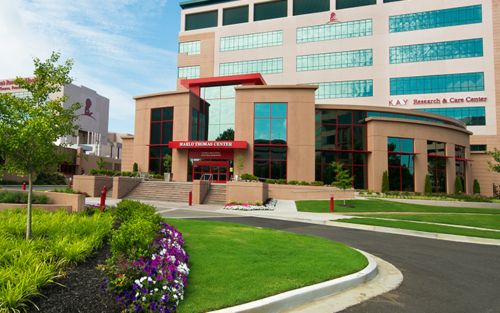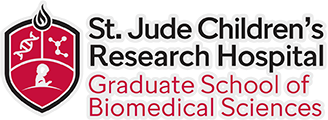Training Independent, Creative and Collaborative Scientists
We educate the next generation—those who will discover cures and advance science
How to ApplyThe St. Jude mission—to advance cures, and means of prevention, for pediatric catastrophic diseases—resonates throughout the St. Jude Children’s Research Hospital Graduate School of Biomedical Sciences. We welcome students into four programs. Each program creates a pathway into becoming a scientific leader, an independent and creative thinker who can advance cures:
We focus on teaching basic scientific principles and connecting these to current scientific research. Our faculty includes basic science researchers, data scientists, public health leaders and expert clinicians.
“Our reputation for scientific and clinical excellence has been achieved by following a simple formula–hiring the best researchers and providing them with the best facilities. We used the same simple formula to create the Graduate School, which boasts a graduate faculty of internationally renowned investigators.”
Stephen White, DPhil
Emeritus
St. Jude Children's Research Hospital Graduate School of Biomedical Sciences

Our Administrative Home: The Marlo Thomas Center
The Graduate School administrative offices are housed on the St. Jude campus in the Marlo Thomas Center. This educational center was built in 2014 to provide a space for researchers and students to collaborate, learn and work together.
The Graduate School has a total of 7,283-square-feet of custom-designed space spread across three different buildings on the St. Jude campus: the Marlo Thomas Center (MTC) on the first floor of the Kay Research and Care Center (KRCC), the Danny Thomas Research Tower (DTRT), and the Inspiration4 Advanced Research Center (I4ARC) first floor. The space in I4ARC contains private study carrels for first-year students as well as a dedicated classroom.
A student 24-hour activity center is located within the DTRT that includes seating, a kitchenette, video games, a pool/ping-pong table and large-screen televisions.
The Biomedical Library and Spaces for Meeting and Teaching
In addition to the Graduate School, the Marlo Thomas Center also contains an auditorium, a lecture hall, meeting rooms, a large atrium and the Biomedical Library. The library is conveniently located adjacent to the Graduate School, maintains an extensive journal collection, and provides easy access to over 11,000 electronic journals, 46,000 e-books and 70 databases. In addition, the library maintains an in-house collection of reference books and journals.
State-of-the-art videoconferencing capabilities enable faculty, staff and students to share ideas, discoveries and clinical information with experts and colleagues at other institutions. With more than 400 seats, the auditorium features folding desktops and outlets for electronic devices. The lecture hall seats 68 in a semicircle, giving it a stadium feel. The auditorium and lecture hall are powered by technologies that support the hosting of scientific conferences, academic lectures, institutional seminars, meetings and symposia.
Spaces for Conversation, Discussion and Brainstorming
Seating areas are interspersed throughout the Marlo Thomas Center to foster idea-sharing. Inviting colors and comfortable couches encourage small, informal gatherings.
Additionally, huddle rooms and meeting rooms, which are distributed throughout the Center, are custom designed to support informal and impromptu brainstorming sessions and discussions. These rooms contain high-definition monitors, cameras and wall-mounted interface panels that allow users to control the technology settings and interact with remote participants.
From Basic Science to Translational Research
Matthew Bell talks about his grad school experiences with his mentor, Stephen Gottschalk, MD, Bone Marrow Transplantation & Cellular Therapy chair and grad school faculty member.
The St. Jude Children's Research Hospital Graduate School of Biomedical Sciences is authorized for operation as a postsecondary educational institution by the Tennessee Higher Education Commission. In order to view detailed job placement and graduation information on the programs offered by the St. Jude Children's Research Hospital Graduate School of Biomedical Sciences, please see the Authorized Institutions and Data.

